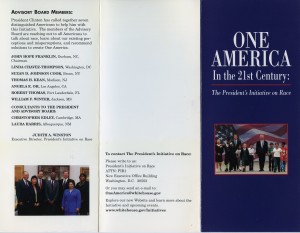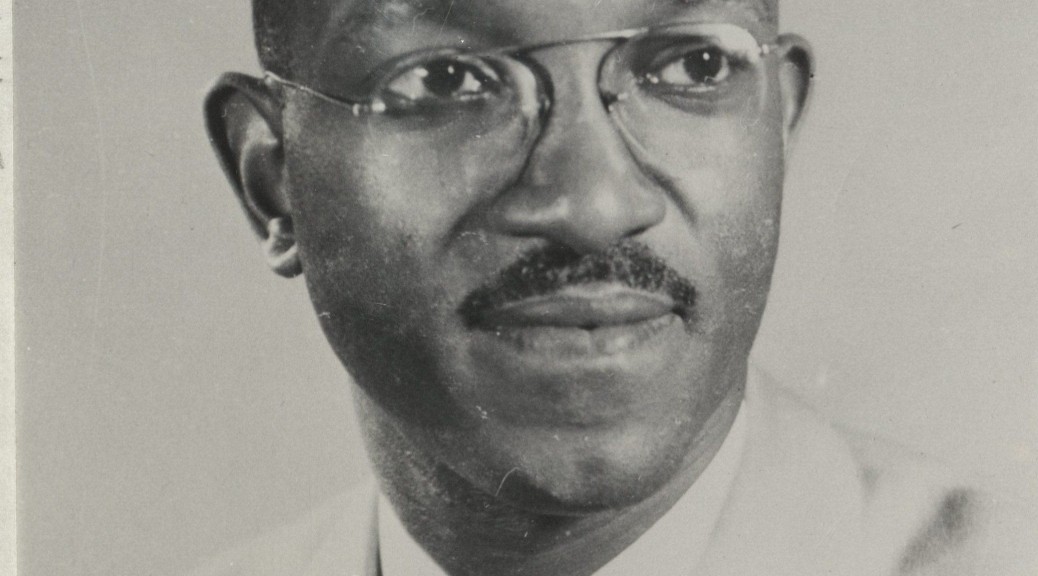In June 1997, President Bill Clinton announced the creation of “One America in the 21st Century: The President’s Initiative on Race,” a 15-month initiative that was established to encourage community dialogue on race relations in the United States. Through the development of guidelines to promote national dialogue, the Board hoped to bridge racial divides and calm tensions, increase understanding about racial issues, and develop concrete solutions to racial challenges.

John Hope Franklin was appointed Chairman of the seven member advisory board whose members included: William F. Winter (former Democratic Governor of Mississippi), Linda Chavez-Thompson (Executive Vice-President, AFL-CIO), Robert Thomas (President and CEO of Nissan Motor Corporation, USA), Angela E. Oh (attorney), Susan D. Johnson Cook (Senior Pastor, Bronx Christian Fellowship), and Thomas H. Kean (former Republican Governor of New Jersey).

The President’s Advisory Board on Race faced intense public scrutiny and was widely criticized by civil rights activists, who felt that the Board did not have a tangible end goal, and could not adequately represent the interests of the entire population on race matters. Critics also felt that dialogue was not sufficient for addressing serious race related problems in the United States.
In spite of the negative press the initiative endured, Franklin felt the work of the board was a much needed step in having a national conversation on race.
This series is a part of Duke University’s John Hope Franklin@100: Scholar, Activist, Citizen year-long celebration of the life and legacy of Dr. John Hope Franklin
Submitted by Gloria Ayee, Franklin Research Center Intern


